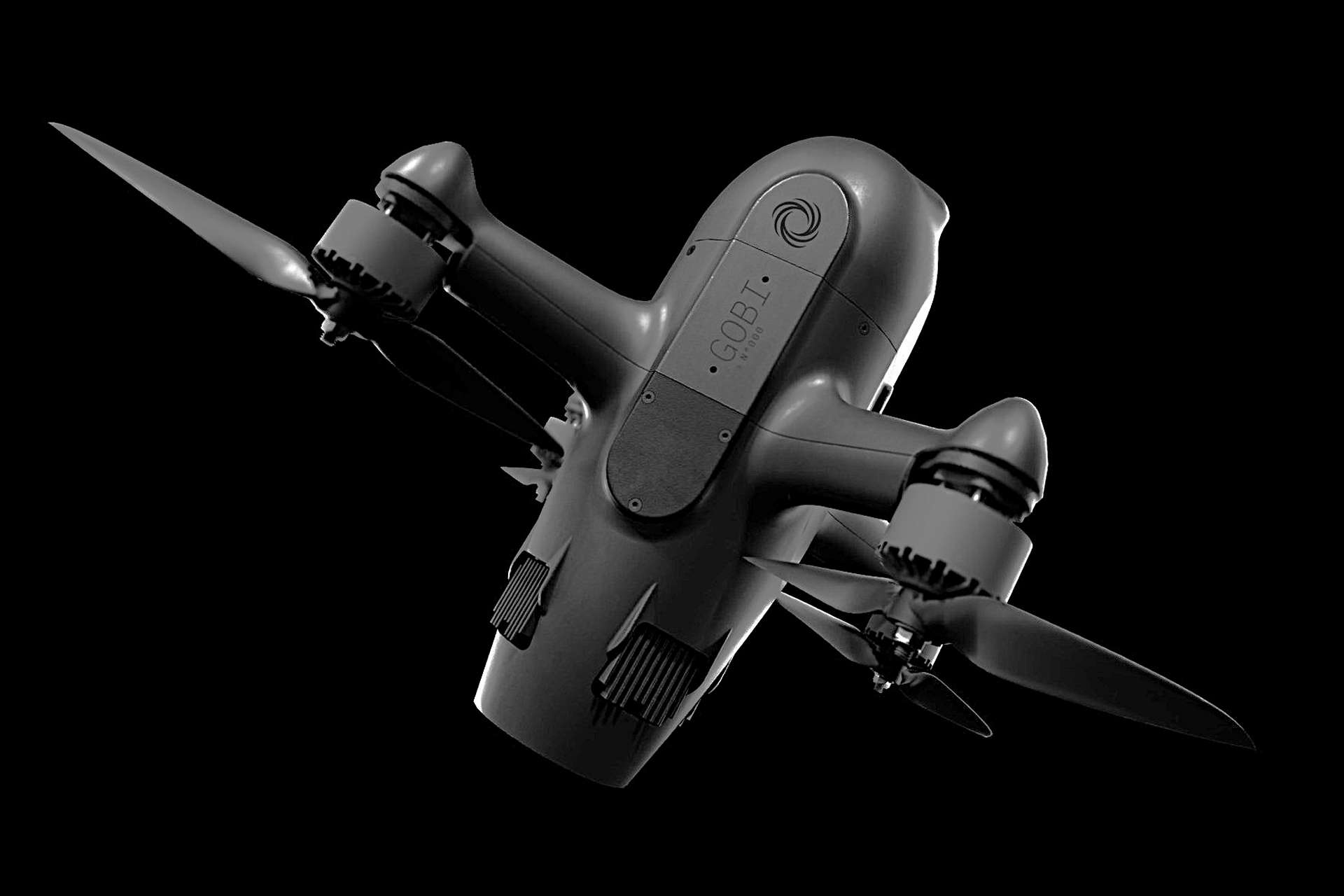France’s Harmattan AI Launches GOBI Drone to Revolutionize Counter-Drone Warfare with Ultra-Fast Interception

{loadposition bannertop}
{loadposition sidebarpub}
On July 16, 2025, French defense startup Harmattan AI made headlines with the announcement of its GOBI drone, a compact high-speed interceptor designed to neutralize loitering munitions like the Shahed-136. As reported by Defense-UA, this breakthrough addresses one of today’s most pressing tactical threats: the growing use of low-cost kamikaze drones. Capable of neutralizing UAVs within seconds, GOBI is positioned as a frontline solution for battlefield protection and homeland airspace security. The drone’s blend of AI autonomy, speed, and lightweight architecture marks a turning point in short-range counter-UAV capabilities.Follow Army Recognition on Google News at this link
By offering an ultra-responsive, AI-driven drone interceptor at low cost and high speed, Harmattan AI has defined a new threshold in counter-UAV defense (Picture source: Harmattan AI)
The GOBI drone is a lightweight, AI-powered interceptor weighing less than two kilograms and capable of reaching speeds of up to 250 km/h. It is designed to eliminate hostile drones within a five-kilometer radius and less than a minute from launch, making it especially suitable for urgent defensive operations in dynamic and saturated airspaces. Devoid of a conventional warhead, the GOBI achieves both lethality and cost-efficiency through a kinetic engagement approach, targeting enemy drones weighing up to 600 kg. Integrated with modern command-and-control platforms, it offers real-time threat recognition and minimizes friendly fire risks.
The development of the GOBI is rooted in Harmattan AI’s mission to merge software-defined defense systems with wartime resilience. Founded in April 2024, the firm has rapidly prototyped and tested the system, aligning it with battlefield feedback from drone-saturated conflict zones such as Ukraine. The GOBI is the product of this iterative process, field-informed engineering backed by cutting-edge AI research. Less than 15 months after its creation, Harmattan AI secured a multi-million-dollar contract from a NATO member for delivery of GOBI-type AI-enabled drones, with deployment slated for October 2025. This accelerated development cycle reflects a new industrial tempo driven by urgent operational demands.
Unlike traditional anti-drone systems, which are often heavy, expensive, or slow to respond, GOBI brings a near-instantaneous and cost-effective alternative. Its kinetic strike method avoids the regulatory, ethical, and logistical burdens of explosive payloads, reducing risks in both combat and civilian settings. Compared to other interceptors such as the Israeli Drone Dome or Rheinmetall’s Skyranger, GOBI stands out for its portability and simplicity. While these larger systems serve broader air defense missions, GOBI excels in swarming response and point-defense against loitering threats. The shift toward small-form autonomous interceptors mirrors historical parallels like the transition from heavy artillery to man-portable guided missiles during Cold War asymmetrical warfare.
Strategically, the GOBI introduces a flexible countermeasure into environments where drone saturation is reshaping airpower doctrines. As loitering munitions are increasingly deployed in grey zone operations, infrastructure sabotage, and cross-border raids, the GOBI offers rapid, scalable protection. For NATO allies and other high-risk nations, it represents an adaptable shield against attritional drone attacks, especially relevant given Ukraine’s experience with Shahed swarms and the evolving tactics of state and non-state actors. Geopolitically, this development reinforces France’s ambition to occupy a leading role in European AI-powered defense innovation.
The emergence of the GOBI system is not just the story of a startup’s technological leap, it reflects a broader shift in how modern militaries must respond to new aerial threats. By offering an ultra-responsive, AI-driven drone interceptor at low cost and high speed, Harmattan AI has defined a new threshold in counter-UAV defense. In an era where seconds determine airspace dominance, the GOBI brings nations one step closer to real-time, autonomous aerial protection.

{loadposition bannertop}
{loadposition sidebarpub}
On July 16, 2025, French defense startup Harmattan AI made headlines with the announcement of its GOBI drone, a compact high-speed interceptor designed to neutralize loitering munitions like the Shahed-136. As reported by Defense-UA, this breakthrough addresses one of today’s most pressing tactical threats: the growing use of low-cost kamikaze drones. Capable of neutralizing UAVs within seconds, GOBI is positioned as a frontline solution for battlefield protection and homeland airspace security. The drone’s blend of AI autonomy, speed, and lightweight architecture marks a turning point in short-range counter-UAV capabilities.
Follow Army Recognition on Google News at this link
By offering an ultra-responsive, AI-driven drone interceptor at low cost and high speed, Harmattan AI has defined a new threshold in counter-UAV defense (Picture source: Harmattan AI)
The GOBI drone is a lightweight, AI-powered interceptor weighing less than two kilograms and capable of reaching speeds of up to 250 km/h. It is designed to eliminate hostile drones within a five-kilometer radius and less than a minute from launch, making it especially suitable for urgent defensive operations in dynamic and saturated airspaces. Devoid of a conventional warhead, the GOBI achieves both lethality and cost-efficiency through a kinetic engagement approach, targeting enemy drones weighing up to 600 kg. Integrated with modern command-and-control platforms, it offers real-time threat recognition and minimizes friendly fire risks.
The development of the GOBI is rooted in Harmattan AI’s mission to merge software-defined defense systems with wartime resilience. Founded in April 2024, the firm has rapidly prototyped and tested the system, aligning it with battlefield feedback from drone-saturated conflict zones such as Ukraine. The GOBI is the product of this iterative process, field-informed engineering backed by cutting-edge AI research. Less than 15 months after its creation, Harmattan AI secured a multi-million-dollar contract from a NATO member for delivery of GOBI-type AI-enabled drones, with deployment slated for October 2025. This accelerated development cycle reflects a new industrial tempo driven by urgent operational demands.
Unlike traditional anti-drone systems, which are often heavy, expensive, or slow to respond, GOBI brings a near-instantaneous and cost-effective alternative. Its kinetic strike method avoids the regulatory, ethical, and logistical burdens of explosive payloads, reducing risks in both combat and civilian settings. Compared to other interceptors such as the Israeli Drone Dome or Rheinmetall’s Skyranger, GOBI stands out for its portability and simplicity. While these larger systems serve broader air defense missions, GOBI excels in swarming response and point-defense against loitering threats. The shift toward small-form autonomous interceptors mirrors historical parallels like the transition from heavy artillery to man-portable guided missiles during Cold War asymmetrical warfare.
Strategically, the GOBI introduces a flexible countermeasure into environments where drone saturation is reshaping airpower doctrines. As loitering munitions are increasingly deployed in grey zone operations, infrastructure sabotage, and cross-border raids, the GOBI offers rapid, scalable protection. For NATO allies and other high-risk nations, it represents an adaptable shield against attritional drone attacks, especially relevant given Ukraine’s experience with Shahed swarms and the evolving tactics of state and non-state actors. Geopolitically, this development reinforces France’s ambition to occupy a leading role in European AI-powered defense innovation.
The emergence of the GOBI system is not just the story of a startup’s technological leap, it reflects a broader shift in how modern militaries must respond to new aerial threats. By offering an ultra-responsive, AI-driven drone interceptor at low cost and high speed, Harmattan AI has defined a new threshold in counter-UAV defense. In an era where seconds determine airspace dominance, the GOBI brings nations one step closer to real-time, autonomous aerial protection.





